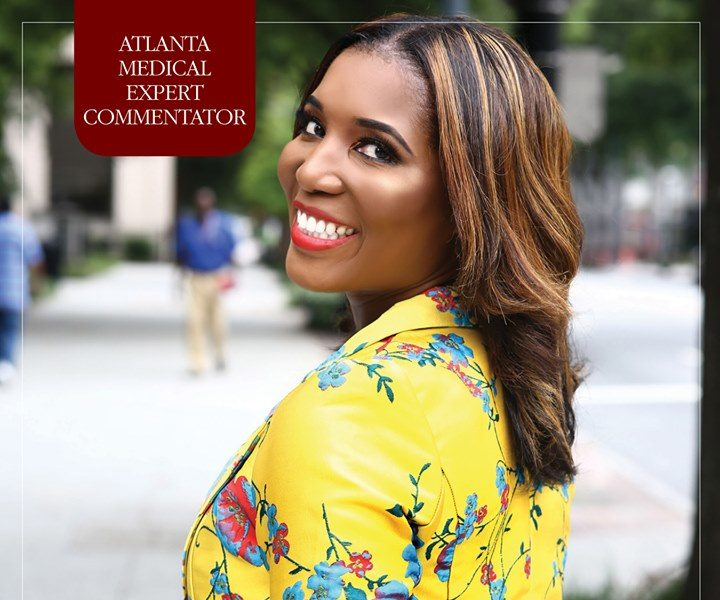By Roz Edward
(Source Atlanta Tribune):
Dr. Frita Fisher author of Under Pressure – A Guide to Controlling High Blood Pressure leads healthcare panel discussion at Black Women’s Expo today, Saturday, Dec. 17
Few people know more about hypertension and kidney function than Dr. Frita Fisher. The triple board-certified physician practices several disciplines and specializes in the fields of nephrology as well as pediatrics and internal medicine. The dedicated doctor has the answers Black people experiencing a broad range of maladies are searching for and she eagerly shares her wealth of information and knowledge with patients and the public. Her YouTube channel has over 490,000 subscribers, and she has appeared as a medical expert on shows such as HLN Weekend Express, the Emmy Award Winning Paternity Court, Fox News Live, Fox Soul, 11 Alive News NBC, Roland Martin Unfiltered, BNC News, PIX11 New York, CBS46, Twin States News, Sister Circle Live, Personal Injury Court, V-103 Radio, Good Day Atlanta.
The affable Dr. Frita, as she is affectionately known by patients and peers, will lend her considerable expertise and commentary to Black Women’s Expo patrons and participants on at 1:30 p.m. on Saturday, Dec. 17 at the Georgia International Convention Center in Atlanta. This compelling and comprehensive discussion will feature leading medical experts and health advocates to address health concerns and spotlight disparities in diagnosis, treatment and outcomes for women of color and Black women in particular.
Dr. Frita spoke with the Atlanta Daily World prior to the prominent women’s event and shared her journey to becoming a leader in healthcare and why the wellbeing of Black people is her primary concern.
On becoming a doctor …
When I first decided to become a doctor there were a few things I wanted to do. When I did my initial specialty training, I wanted to be a primary care doctor and go to a rural area and provide service … but then when I did my training I saw that nephrology – kidney disease – was something that effected Black people more. When I went to the dialysis unit, I saw that all of the patients were Black. But then when I went to the transplant center where patients were receiving the … gift of life, almost all of the patients were non-Black and that’s when I realized that there was a huge disparity in [care and treatment]. I saw that there was great room for education and advocacy which I put at the forefront of my goals, trying to close the inequity gap and bring awareness and light to health care disparities.
On disparities in healthcare …
If you don’t have health access, if you don’t have a job that offers insurance [benefits] for these diseases that are silents. like hypertension, diabetes and cancer, diseases that often don’t have symptoms until it’s too late, if you don’t have economic wealth than lack of access is going to be a problem.
The other part is education. If you come from a family that doesn’t necessarily prioritize health or health eating that asl contributes to the health disparity.
And then you look at traditions like soul food, [it includes] a lot of salt, pork and carbohydrates. One of my pet peeves is when people say, “I don’t eat that anymore, I don’t eat slave food,” that drives me crazy because when I think about what they call slave food and what people ate during that period it was genius. They figured out how to make something out of nothing and they used salt to preserve the food. That’s how you preserved food, with salt. That’s how people survived when they didn’t have access. Fast forward to the present day and we know that those foods and the way that they are prepared traditionally are the things that lead to high blood pressure and diabetes and all types of inflammation in the body. I say that to say that with our traditions and when you have people who are condescending telling you, “You need to leave that salt alone, why are you eating that pork,” then you are insulting someone’s grandmother, you’re insulting a culture, and that creates a distrust.
On who is at risk …
It’s not just people who have limited education or limited access who face health care disparities. You have people who are highly educated, and very specifically when you look at Black maternal mortality. In that case it exists due to systemic racism and implicit bias. I watch people all of the time and I look at politicians who say there is no such thing as systemic racism, and I say, “are you serious?”
I experienced it [myself] when I was a young physician. When I was having my first child, I wouldn’t mention that I was a doctor [when I went for my visits]. I wanted to be humble, and I wore my hair in braids because it’s easier when your pregnant and I wore hoop earrings. The treatment I got was horrible compared to when I would say that I was a physician and was more forceful. I would make suggestions and the [experts] would just talk over me until I spoke up and started using medical terms. That’s when they did the tests that I asked them to do, and had they not and sent me home, I could have died.
I had my education, I had my access, but the thing that put me in that [dangerous] position is that I have Black skin.
